
In this lesson, students will learn how to address an audience, focusing on formal style and objective tone.
- Subject:
- English Language Arts
- Material Type:
- Lesson Plan
- Provider:
- UnboundEd Learning
- Author:
- UnboundEd
- Date Added:
- 04/23/2019

In this lesson, students will learn how to address an audience, focusing on formal style and objective tone.

In this lesson, students will learn how to address an audience's knowledge level and how to use an objective and formal tone in their informative writing.

In this lesson, students will learn how to identify and use formal style and objective tone in their argument writing.

In this 3-4 day lesson, students will focus on how to read a text closely and how to analyze visual-based texts, using strategies such as partner work, guiding questions, and online sources.
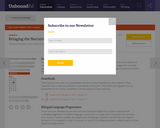
In this lesson plan, students will continue reading Sugar Changed the World, examining how the author structures the text to make connections.

In this resource, students will prepare to read an excerpt from The Wizard of Lies by listening to a recording of a review of the book.
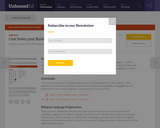
In this lesson, students will explore how Washington refines the meaning of the phrase "cast down your bucket" in paragraph 5 of the "Atlanta Compromise Speech."
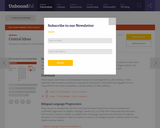
In this lesson, students will analyze the relationship between events and central ideas in Virginia Woolf's A Room of One's Own.
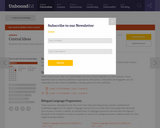
In this lesson on The Autobiography of Malcolm X, students will identify and analyze central ideas in the text, exploring how they interact with one another.

In this lesson, students will analyze chapters XIV-XV of The Awakening, focusing on the continued development and interaction of two central ideas.
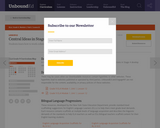
In this lesson based on St. Lucy's Home for Girls Raised by Wolves, students will work in small groups to analyze how the characters' interactions help refine and define the themes of the text.

In this lesson, students will focus on tracking the central ideas of memory, hope, and suffering in Elie Wiesel's Nobel Peace Prize lecture, "Hope, Despair, and Memory." Students will gather this information in order to begin building evidence-based arguments using inquiry-based research.

In this lesson, students will collaborate in groups to discuss Washington and Du Bois's central ideas and supporting claims.
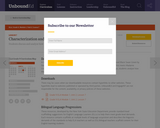
In this lesson based on the chapter "Solarium" in David Mitchell's novel, Black Swan Green, students will read and discuss how the author develops characters.
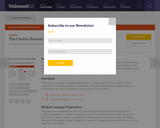
In this lesson on Oedipus the King, students will explore the relationship between human and divine power and the role of fate in Oedipus's guilt.

In this lesson, students choose a claim and a counterclaim based on their evidence based claims criteria. Students will also evaluate a peer's choice and offer feedback.
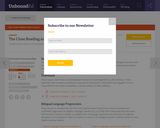
In this lesson, students will learn to read closely and annotate informational text.
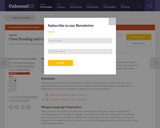
In this lesson plan, students will read "The Overseer" and analyze how specific words and phrases impact the development of ideas in the text.

In this lesson, students will learn to identify and use varied syntax and transitional words and phrases for their argument essays.

In this lesson, students will work on using transitional words and phrases in order to improve the syntax of their informative papers.